-- The moment of truth has arrived for Chinese authorities, students and parents as the national college entrance exam, also known as the gaokao, began Tuesday after it had been delayed for one month due to the COVID-19 epidemic. -- Over 10 million students sit this year's national college entrance exam, deemed the most important event for them as it provides a fair opportunity to set the directions for their future careers. -- The organization of such a large-scale annual gaokao highlights the country's effective regular epidemic control after it had won strategic achievements in containing the spread of the novel coronavirus. by Xinhua writers Qiang Lijing, Zhong Qun, Zhao Wanwei, and Yu Pei The moment of truth has arrived for Chinese authorities, students and parents as the national college entrance exam, also known as the gaokao, began Tuesday after it had been delayed for one month due to the COVID-19 epidemic. Over 10 million students sit this year's national college entrance exam, deemed the most important event for them as it provides a fair opportunity to set the directions for their future careers. Nationwide, more than 7,000 exam sites have been set up, with around 400,000 examination rooms, while 945,000 people work as invigilators or service providers for the exam. 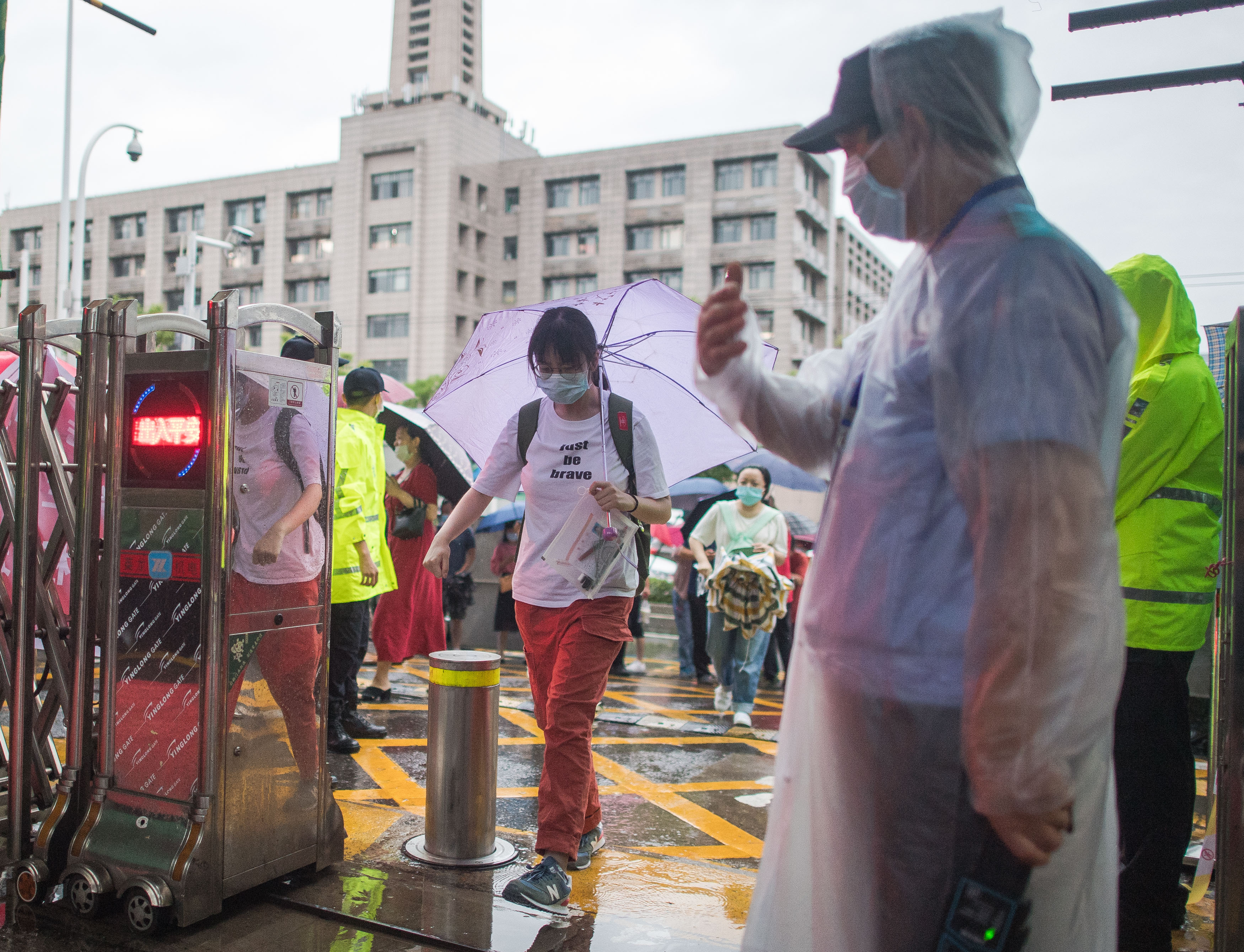
Examinees enter an exam site in Wuhan, capital of central China's Hubei Province, July 7, 2020. (Xinhua/Xiao Yijiu) The organization of such a large-scale annual gaokao highlights the country's effective regular epidemic control after it had won strategic achievements in containing the spread of the novel coronavirus. In Beijing, nearly 50,000 students take the exam this year. A total of 132 schools have been arranged as exam sites in the capital city. At Beijing No. 12 Middle School in Fengtai District, examinees entered the campus on Tuesday morning before passing through a blue tent, where their body temperatures were checked by an automatic electronic thermometer one by one. 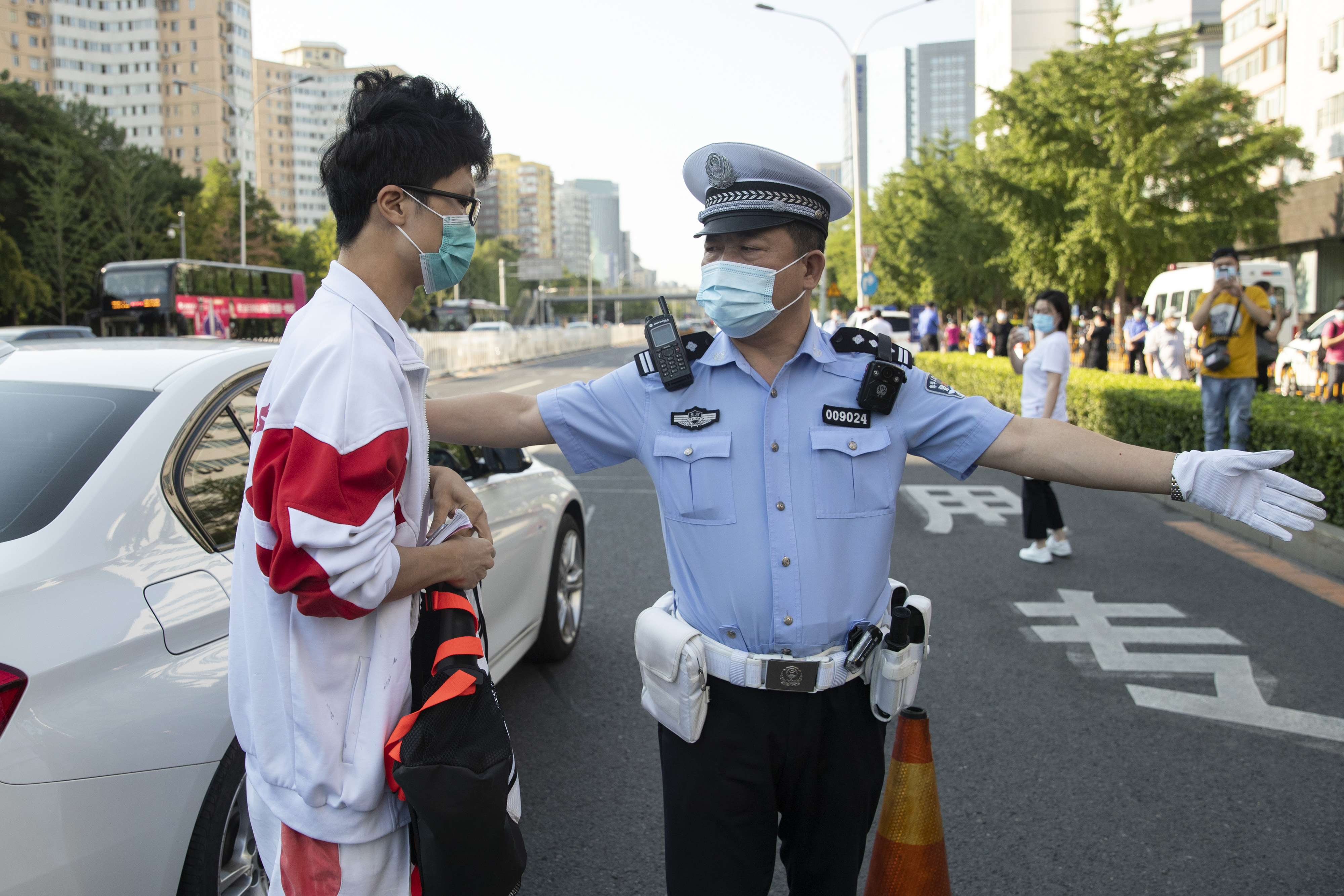
A policeman guides the orderly parking of a car sending an examinee to an exam site in Beijing, capital of China, July 7, 2020. (Xinhua/Shen Bohan) Fengtai has seen an outbreak of new infections since June 11, and the epidemic control measures are particularly tight. A total of 660 students were scattered in 33 classrooms, with 20 examinees and two invigilators in each room. The space between each desk was expanded to at least one meter. Li Ke, the mother of a high school graduate in Beijing, said, "It's really not easy for this year's examinees." "This year is very special. Some excellent students who had intended to apply for overseas universities may choose to sit the exam too, which will make the competition fiercer," she said. Different from previous years, fewer parents were waiting in front of school gates during the exam this year. In line with epidemic prevention measures, community workers helped to persuade eager parents not to gather outside the exam sites as they normally do the other years. Since June 11, Beijing has seen a resurgence in locally transmitted COVID-19 cases, prompting the municipal government to tighten containment measures. Thanks to the efforts, the city reported no new confirmed domestically transmitted cases on Monday after it had reported single-digit cases for eight consecutive days. 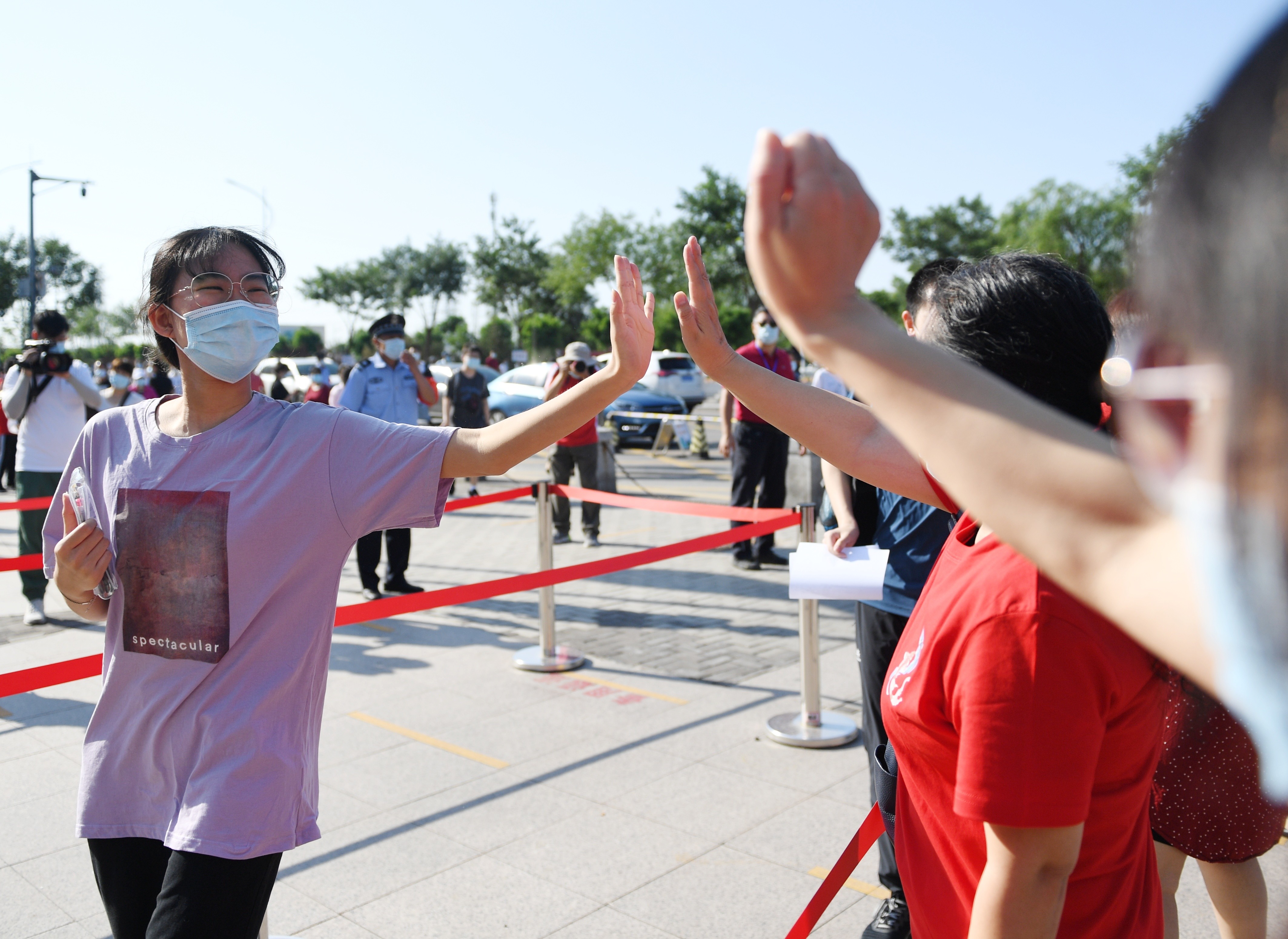
An examinee claps with a teacher outside an exam site in Beijing, capital of China, July 7, 2020. (Xinhua/Ju Huanzong) Beijing has not mandated that all examinees take a nucleic acid test but has required all invigilators to take the test seven days before the exam. All people at the exam sites must wear face masks throughout the exam, according to Li Yi, spokesperson for the Beijing municipal education commission. Beijing has also stepped up the monitoring of examinees' health. The health condition of all the high school graduates will be monitored by their schools on a daily basis starting from the 14th day before the examination. Due to the epidemic situation, Beijing required that each exam site should have no less than three spare rooms in case of emergencies. Sanitizers, napkins and face masks are provided at the door of every classroom. Spare exam sites have also been arranged in Beijing for students who show abnormal physical conditions, or are under quarantine, authorities said. No confirmed or suspected cases have been reported among Beijing examinees. In Wuhan, capital of central China's Hubei Province, a series of strict anti-virus measures were also put in place to ensure the safety and health of over 59,000 examinees for the exam, according to the Wuhan Admission and Examination Office. 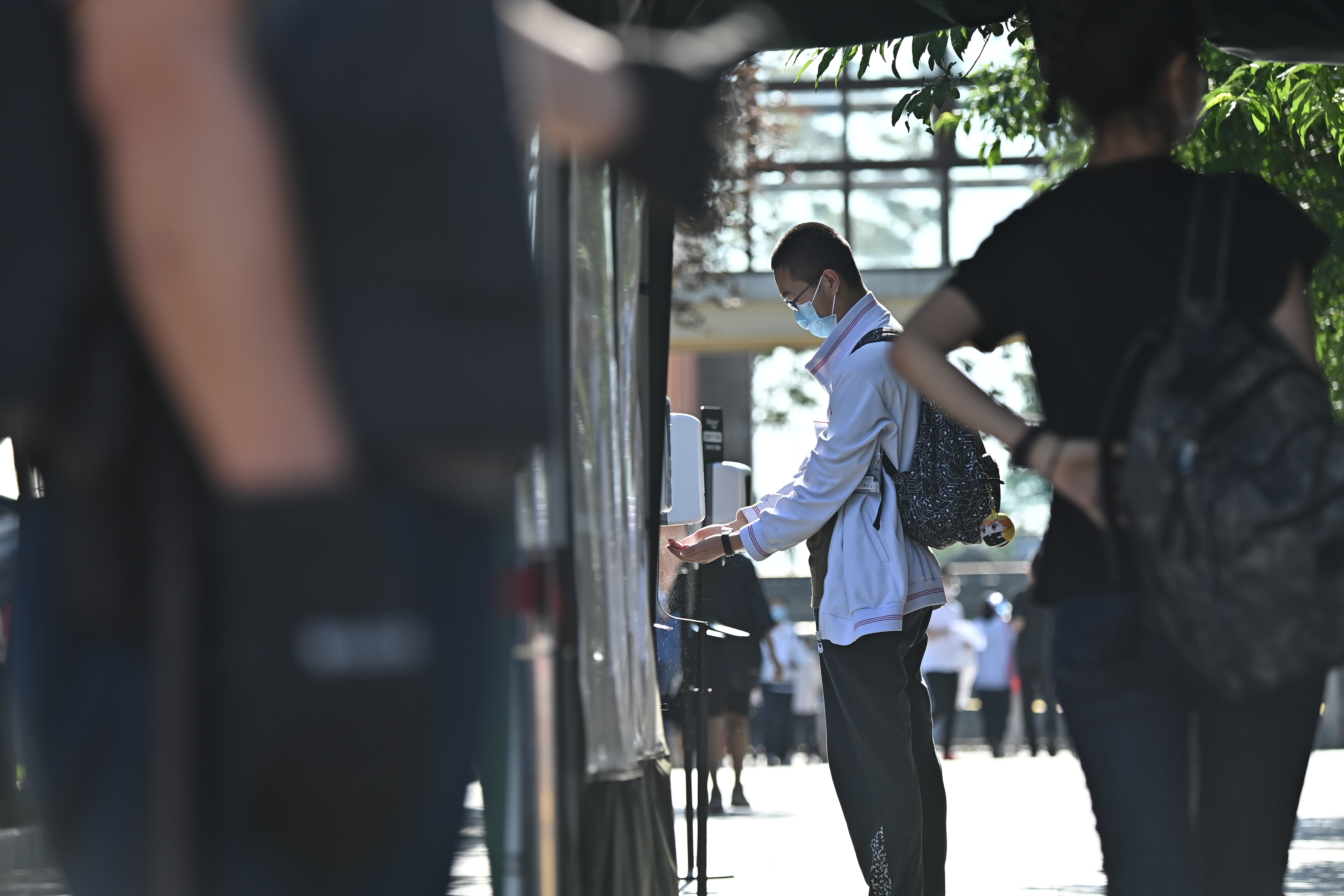
An examinee has his hands sanitized at an exam site in Beijing, capital of China, July 7, 2020. (Xinhua/Liu Jinhai) Similar to Beijing, all the staff and candidates in Wuhan, once hit hard by COVID-19, were required to have their temperature taken daily and recorded 14 days in advance. Epidemic prevention staff are responsible for disinfecting the exam sites and related facilities before and after each test. But, unlike in Beijing, examinees here can decide whether to wear masks during the exam, as the city is now identified as at low risk, according to the Wuhan Admission and Examination Office. Jiang Xinrun, a graduate of the middle school affiliated to Hubei University, said, "The pandemic did have some influence on our preparation for the gaokao, but the darkest days have passed. I am confident that our efforts won't be in vain." At No. 15 Middle School of Wuhan, teachers remained in constant contact with the students about their academic progress as well as their psychological well-being before the exam. Meanwhile, the school also provided psychological counseling for the students. 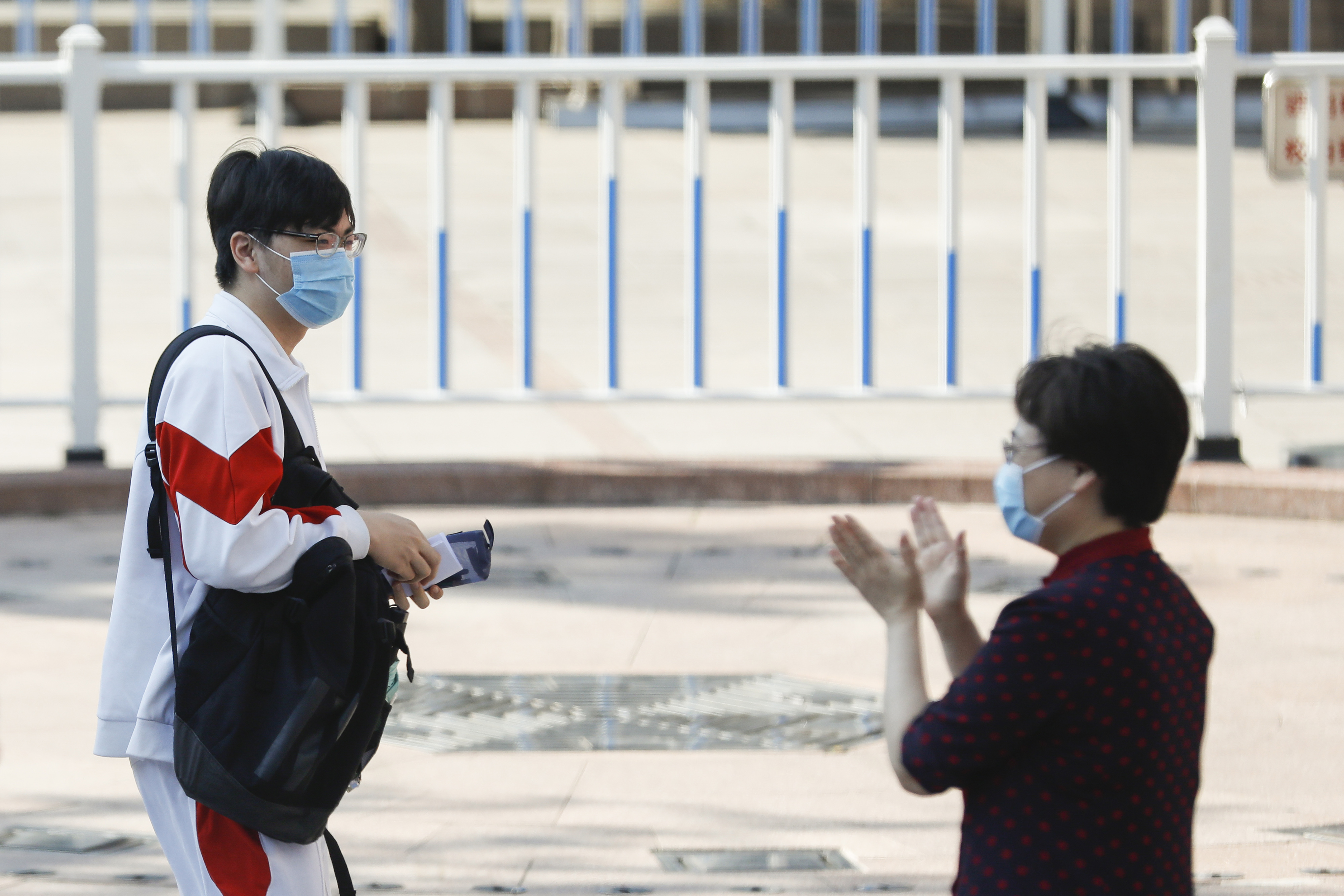
An examinee passes a teacher who encourages examinees outside an exam site in Beijing, capital of China, July 7, 2020. (Xinhua/Shen Bohan) The exam began as rainstorms have recently battered some places in south and east China, causing traffic problems for some examinees. The examination did not proceed as scheduled in Shexian County, east China's Anhui Province, as torrential rain caused severe flooding in the county. River water overflowed into downtown streets of the county seat, and most of the 2,000-plus examinees were unable to reach their exam sites on time, according to the local authority. The provincial education authority said the exams on Chinese language and math on Monday will be rescheduled for the affected students. |










7740f3b5-9ecb-438e-9052-76cb2d4bb671.jpg)

